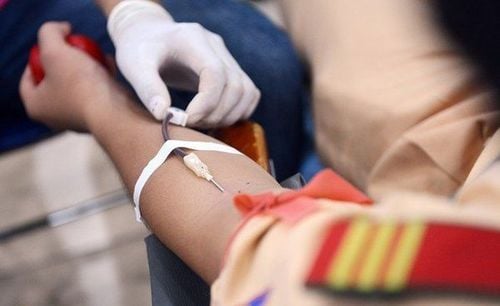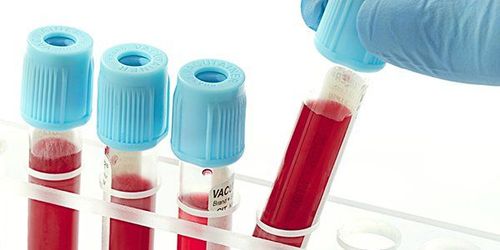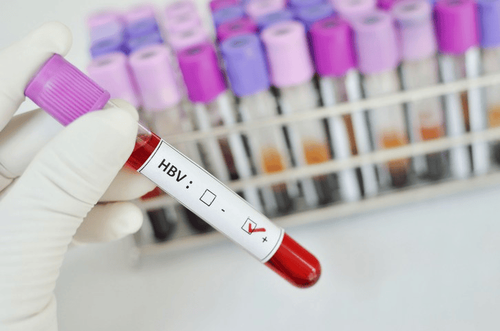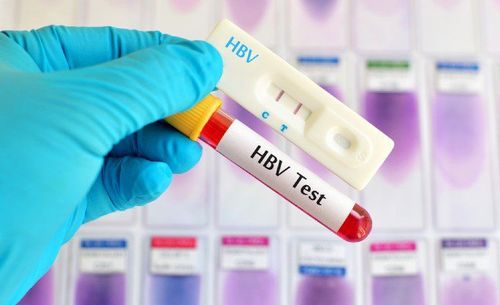This is an automatically translated article.
The article is professionally consulted by Master, Doctor Vu Tan Phuc - Gastroenterologist - Department of Examination & Internal Medicine - Vinmec Phu Quoc International General HospitalIf you have had the disease for a long time without knowing it, you may have unknowingly passed it on to other family members. Although hepatitis C is not easy to get, you still need to take a few precautions to limit your risk of passing it on to others.
1. How is hepatitis C transmitted?
Hepatitis C is only spread through contact with the blood of an infected person.Actions that increase the risk of high levels of infection include:
Sharing needles or anything related to injecting drugs: from syringes, needles, cigarette butts or The tip of the inhaler can be contaminated with blood from chapped lips or nosebleeds, if a small amount of blood is present, the hepatitis C virus can be transmitted. Tattoo tools are not disinfected after use or tattoo ink contains tattoo ink. Blood can spread the hepatitis C virus. Blood transfusions in countries that do not offer hepatitis C screening for blood donations. Not performing disinfection of medical equipment or doing it but not cleaning can still spread the virus. Blood donation or blood cutting ceremonies that involve sharing tools or exchanging blood between multiple people increase the risk that the hepatitis C virus can be transmitted.

Shared or unsanitary use of tools used for brushing and personal hygiene, including razors, toothbrushes, utensils nail clippers or any other tool that may have your blood on it. You need to cover any open wounds or sores with a bandage, and carefully dispose of used tampons, tampons, tissues, diapers, and anything else that may have blood on it. Unsafe sex. Although very rare, you can spread it to others or get it from others, especially during menstruation or performing violent sexual acts such as fisting, which in addition increases the chance of infection. HIV and other sexually transmitted diseases. Pregnancy and childbirth. This is a risk when a woman transmits the disease to her baby before or during delivery, and the risk increases if the mother is infected with HIV. Stabbed needles - this is a common occurrence among healthcare workers. Actions that do not transmit the hepatitis C virus, including:
Coughing Sneezing Hugging Kissing Breastfeeding (unless nipples are cracked or bleeding) Sharing cooking utensils or eyeglasses Casual conversation Sharing food eat and drink Mosquitoes or other insects
2. Is it possible to get hepatitis C from sex?
Hepatitis C can be spread through sexual contact, but it is very rare and even rarer when monogamous. In fact, the U.S. Centers for Disease Control and Prevention (U.S. CDC) looks at the risk of sexual transmission between couples who are so faithful that they don't even recommend condom use. In addition, there is no evidence that hepatitis C is spread through oral sex. But you should avoid sharing razors, toothbrushes, nail clippers, and having sex during your period.If you have HIV or have multiple sex partners, you should use a condom to protect yourself and others.

3. Who is at risk for hepatitis C?
The risk of hepatitis C is increased when:Injecting opiates or other stimulants even once Was born between 1945 and 1965 Received blood clotting factors before 1987 Received a blood transfusion or internal transplant organs before July 1992 Received a blood transfusion or an organ from a hepatitis C-positive donor On dialysis infected with hepatitis C virus Being in prison or already in prison Performing invasive techniques or actions or tattooing with tools that are not completely sterilized.
4. Could you be re-infected?
Have. If you have been infected and successfully treated, you can still get hepatitis C virus again.5. Can you donate blood or organs?

Currently, Vinmec International General Hospital is implementing Packages for screening and early detection of liver cancer suitable for many subjects at risk of different diseases, including the package of liver cancer screening - developing liver cancer. Early detection of cancer without any symptoms. When registering for the package of screening and early detection of liver cancer, customers will receive:
Examination and consultation with an oncologist through an oncology appointment. Peripheral blood cell analysis. Assess liver function through tests such as measuring ALT activity (GPT), measuring AST activity (GOT), measuring GGT activity (Gama Glutamyl Transferase), measuring total bilirubin. Screening for hepatitis B and C virus infection through rapid HBsAg test and automatic immunological HCV Ab test. Screening for liver cancer through the quantitative test of AFP (Alpha Fetoproteine). Screening for liver tumors by abdominal ultrasound (general). Screening for liver cancer helps to detect early stages of liver cancer so that appropriate and timely treatment measures can be taken. If you have unusual symptoms, you should be examined and consulted with a specialist.
Please dial HOTLINE for more information or register for an appointment HERE. Download MyVinmec app to make appointments faster and to manage your bookings easily.
Articles refer to the source: Webmd.com














